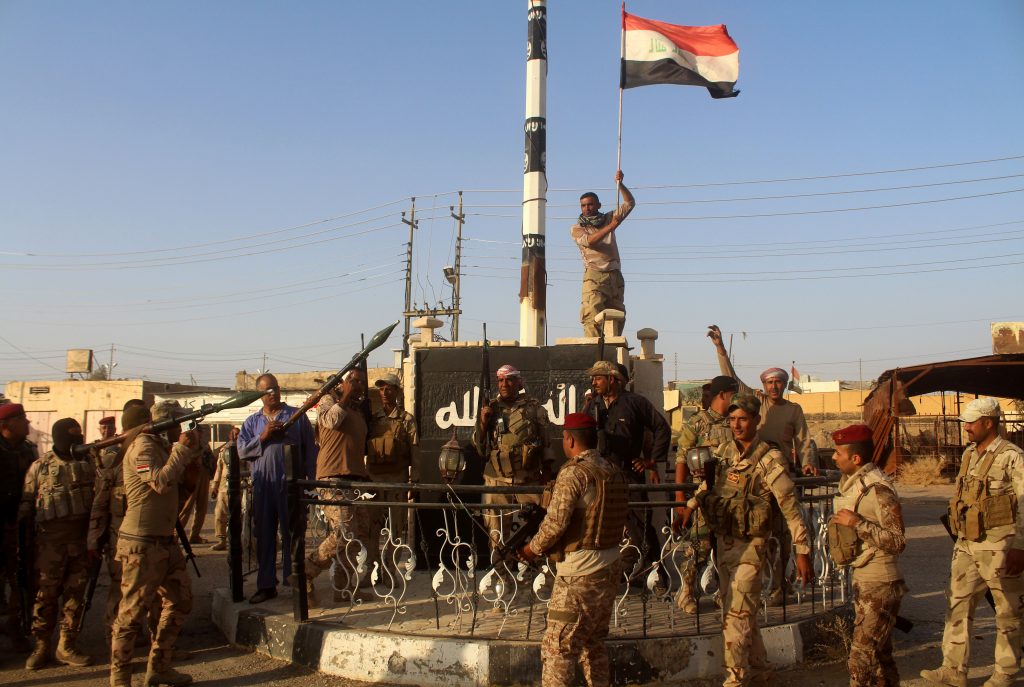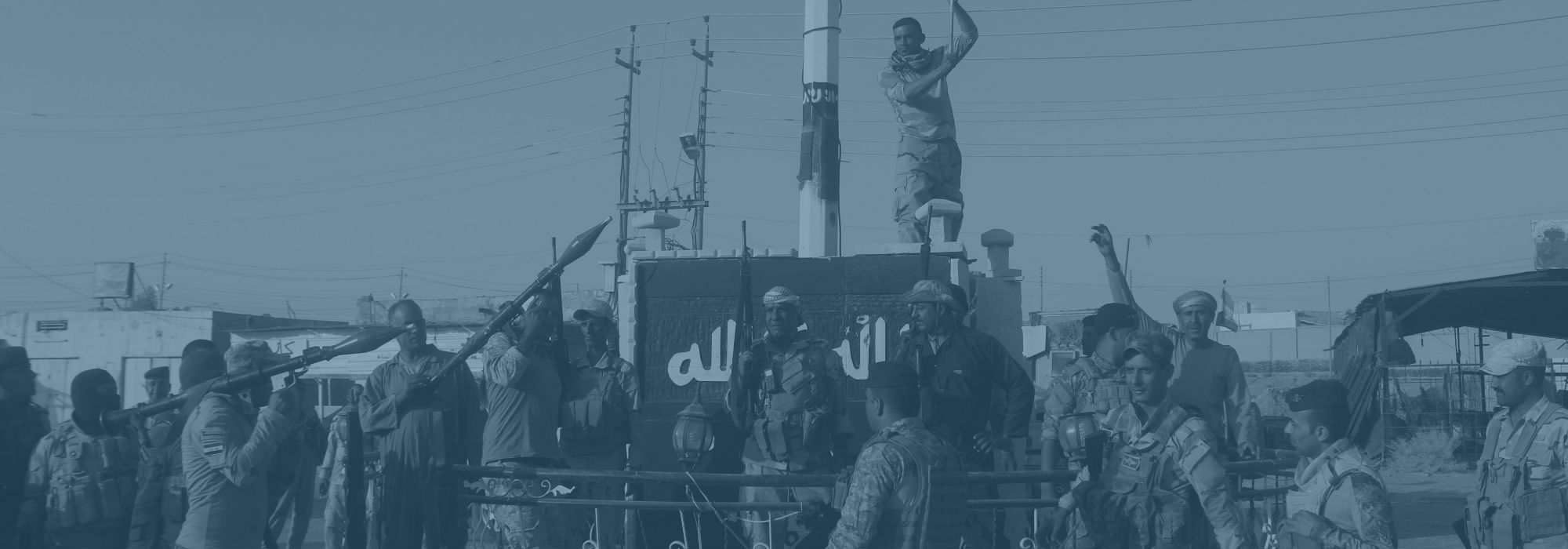By George Friedman
We see daily evidence about the coming assault on Mosul and the growing weakness of the Islamic State (IS). It is an interesting approach to the offensive, with announcements of an attack being made months in advance and no attack coming. In a way, that makes sense. If you are not going to attack, keep announcing an impending attack to keep the defenders off balance. The last thing you would want to do if planning an attack on anyone is to let them know, the value of surprise being what it is. It is an odd situation, and IS is an odd matter.
IS emerged when it split from al-Qaida. Both groups had the same moral and religious principles, but IS differed in that it wanted to move forward with the creation of a truly Islamic (by its standards) state and declared that it had re-established the caliphate. IS’ goal was the same as al-Qaida’s. Where al-Qaida was hoping to overthrow an existing Muslim state and build the caliphate there, IS imagined the creation of a new territory on which to re-build the caliphate. In effect, IS was prepared to seize territory across existing borders and impose a state. Given al-Qaida’s failure to overthrow any governments, IS’ evolution was reasonable, except that its ability to seize and hold territory seemed dubious.

IS split from al-Qaida in 2013. It began operations designed to seize territory in early 2014. As IS emerged in January 2014, President Barack Obama dismissed it as the junior varsity team of the jihadist movement. IS seized Mosul in June 2014 following a stunning, rapid campaign that struck everyone by surprise (all now deny they were surprised of course, but I sure was). Mosul is the second largest city in Iraq and used to contain over a million people. So capturing it was quite a feat, and taking it by surprise was even more impressive. But most impressive is the fact that IS has held and administered the city for over two years. The administration is by all accounts brutal, but the city continues to exist, people are fed and so on. However much the population may have decreased, holding and running Mosul was not the act of the junior varsity.
IS created a continuous territory in Iraq and Syria, and other groups in other countries claimed loyalty. But the key is that IS has taken and held territory stretching from eastern Iraq to the heart of Syria. There have been counterattacks against IS, but retaking all the territory the group holds has proved impossible. The most troubling obstacle, strategically and psychologically, has been the inability to retake Mosul.
Mosul is an Iraqi city that can threaten the Kurds and the Turks. It is a major city in a place no one would want one. Taking a city that housed a million is militarily brutal. The U.S. Army has never taken a city of that size against a vigorous defense. The characteristics of a city multiply the defender’s effectiveness many times over. The attacking force must move forward. The defender can wait and ambush attackers from many locations, and the best defensive points are in the rubble created by artillery fire and airstrikes. The more of each, the more difficult it is for the attacker to advance. Therefore, the U.S. has avoided urban warfare against conventional forces, preferring to encircle or pass by cities, rather than to take them by main force. The Soviets, who did engage in urban warfare, lost about 300,000 in the final battle for Berlin.
Therefore, the idea of the United States sending in a major force to take Mosul is not on the table. Air support would be provided, accompanied by the creation of rubble. The Iraqi army is hardly trained, equipped or motivated to advance into a defended city. The peshmerga, the Kurdish militia that is frequently pointed to as an overwhelming force, is in reality divided between several factions in the Kurdish community. Whoever attacks first is likely to suffer enormous casualties, and that faction will lose its fighters. The military forces are the foundation of the Kurdish factions, so no faction is eager to commit its force first.
Last week, Turkey announced it was prepared to send forces to attack Mosul, and the Iraqi government made clear that it did not want the Turks on its territory. The Iraqi army is dominated by Shiites and advised by Iran. Turkey is Sunni, and this rivalry is more important than Mosul.
When the United States invaded Iraq, one of its advantages was the split between Sunni, Shiite and the various tribes that made an effective defense impossible. Now the United States faces the price of the division, as it tries to create a coalition prepared to bleed in Mosul. Everyone wants IS out of Mosul. No one is prepared to pay the cost.
The idea that IS is weak is meaningless without answering the question: compared to who is it weak? The period of IS’ rapid offensive has ended, at least for the time being. It is now on the strategic defensive. This can be confused with impending collapse. A strategic defensive position with a well-disciplined force compels the enemy to take the offensive, and gives IS the defensive advantage, particularly in areas that can be well fortified like cities. It forces the enemy to absorb extreme casualties. But most of all, in coalition warfare, the threat of extreme casualties can implode the coalition. Who goes first?
The most striking thing is how little territory has been retaken from IS, in spite of multiple powerful enemies. It has retreated from territory and cities under pressure. But it has retreated in an orderly fashion and re-established defensive lines. It did not collapse during the retreat, which is a vital measure of a military force. Anyone can advance in victory, but absorbing defeats and surviving is the measure of a military force.
IS continues to survive. It is not a small force, given the territory it holds, although no one knows the precise number in its ranks. It is able to support this force because it has supporters outside the territory to help with supply and provide money. So there is the added problem that IS is not isolated. If it were, it would be gone, unable to feed itself. It is there, so it is not isolated.
However, its enemies are completely divided, and none of them want to contribute the primary force to go into Mosul. Everyone is declining the honor of leading the attack. U.S. Special Forces are not designed for sustained house-to-house fighting any more than allied forces are.
At this moment, the question is not the weakness of IS, but the weakness and division of its enemies. IS has held Mosul for two years. Iraq and the United States have not. The constant reports on IS’ imminent collapse may be true by some calculations, but they don’t seem true to me.






 The Geopolitics of the American President
The Geopolitics of the American President